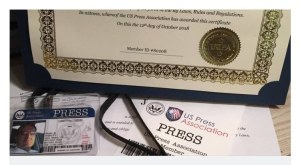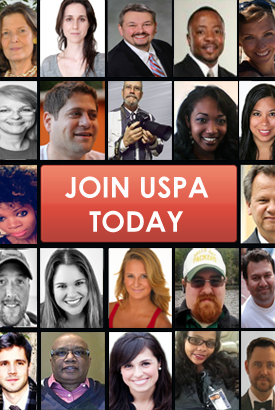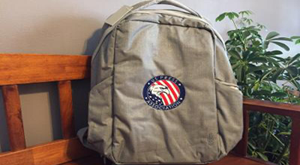Dangers of fake websites & foreign press "agencies" offering fake "press passes"
Since our inception there have been many websites attempting to pass themselves off as the US Press Association.
The facade that is put up by some of these websites is very elaborate. There are interconnected webs of "press agencies" offering to sell you a "press pass" or some other bogus card.
Fact is, these people have no idea what they are doing. Sure, they have convinced enough people to buy their product and if you go to their site you'll see some members. These numbers pale in comparison to the vast member base that has chosen to trust us, the US Press Association. These sites and their operators desperately want to know how we operate.
Why do they want to know? The answer is simple. We have been dedicated to serving and assisting freelance and professional journalists and others involved in media for close to two decades now. These pop-up websites have been around for weeks, some have managed to deceive their way into a few years of operation.
We need to take a stance against this type of deceptive practice!
This surge in underground "press agencies" is creating a lasting mark on the integrity of freelance and even professional media organizations.
Many of these websites are really just one big interconnected web owned and controlled by a few people.
They create a business structure and set up a registered agent office in a state like Nevada, meanwhile they are nowhere to be found within the United States, instead they reside elsewhere in countries like Germany, Russia and several others. Of course, being a resident of these other countries is not an issue, the issue lies within the deceptive web in which they cast to catch unsuspecting individuals.
Another tactic that these sites use is keyword stuffing. They will load there site up using keywords used by credible sites in an effort to get their site to rank for a particular search. These keywords range from basic phrases that do pertain to a press pass all the way to the star telegram press pass which is actually an old website with information on a subscriber savings card. There are no lengths these scammers won't go to to separate people from their money!
You Decide
Freelance Credential - Insight & Info
We came across this blog and decided to link to it from here. We hope it serves it's readers well.
Excerpt from blog at blogger.com
One of the most frustrating things we experience as a freelancer whether it be as a writer, photographer, editor or other is limited access or lack of perceived credibility. Obviously our portfolios and bodies of works can speak for themselves and address some of these issues. Still, some people want to see some kind of ID or credential before allowing us into their venues or events.
Yes, there was a time when this was the most frustrating part of being a freelancer. Well, guess what??? That is no longer the most frustrating aspect, especially if you are just starting out. Now in addition to addressing this need, relative newcomers are faced with so many search results claiming to offer a solution for you.
We had a chance to catch up with one of the "members" of a so called press agency. We found her at a place called depositphotos.com, an online resource for various stock photography. She had very little time for us as she is a very busy person given that she is a (student, model, computer technician, receptionist, doctor, yoga instructor, photographer, reporter, customer service rep), just to name a few things. We have some images below that are linked to the website where you too can purchase images of this very busy woman.

Here is a link to a page full of models holding up blank cards - https://www.shutterstock.com/search/similar/104385785
And More photos of the same model posing for other tasks, trades, jobs - https://www.shutterstock.com/search/models/12530077?context_photo=104385785


















